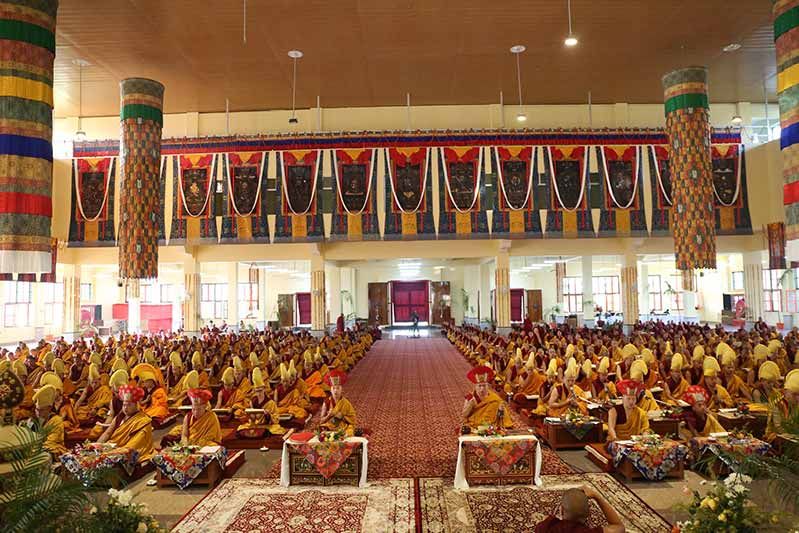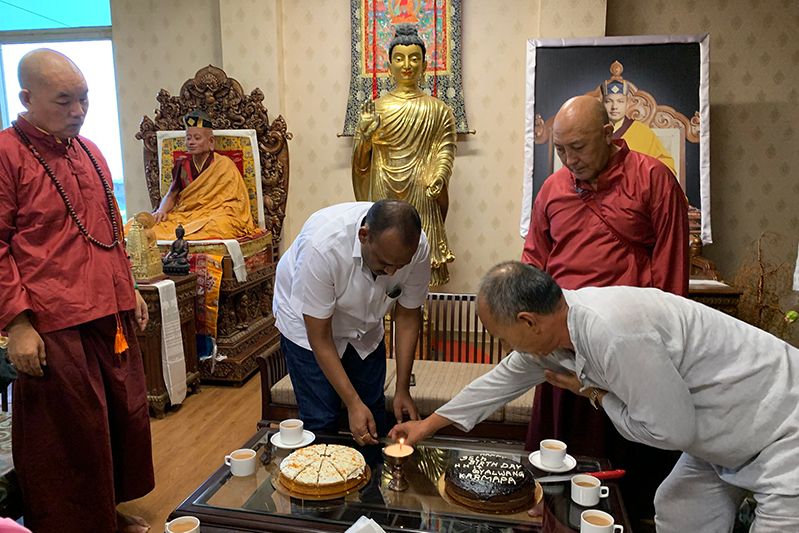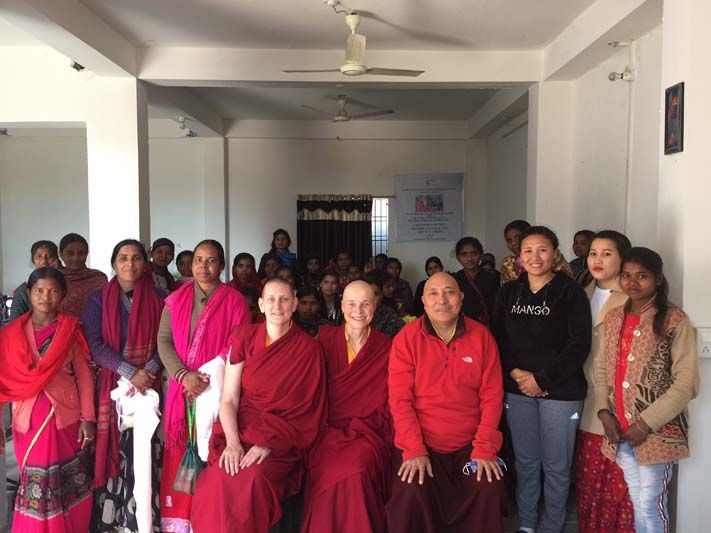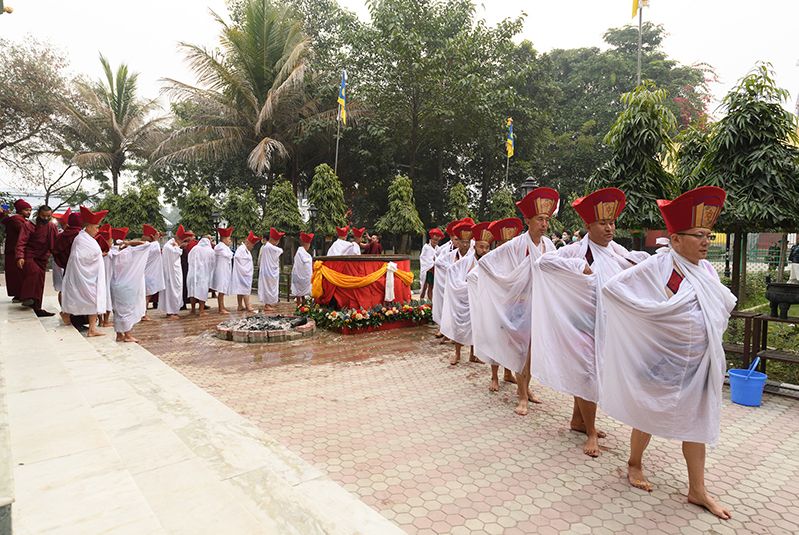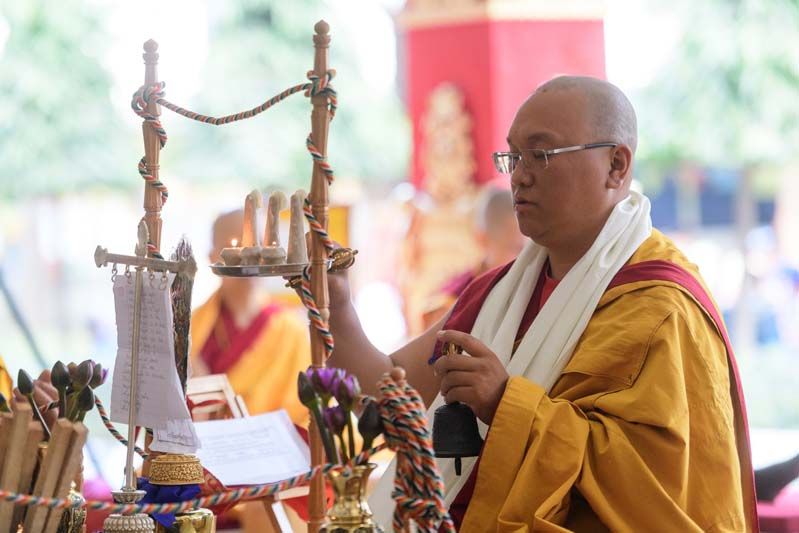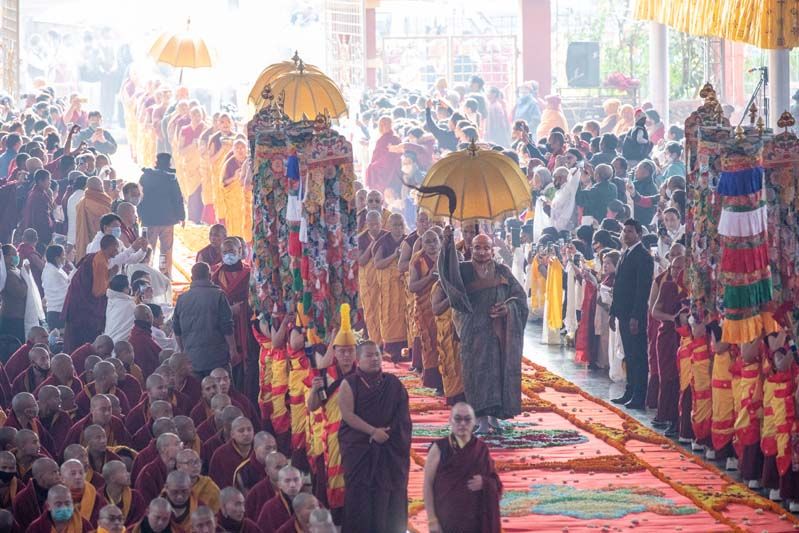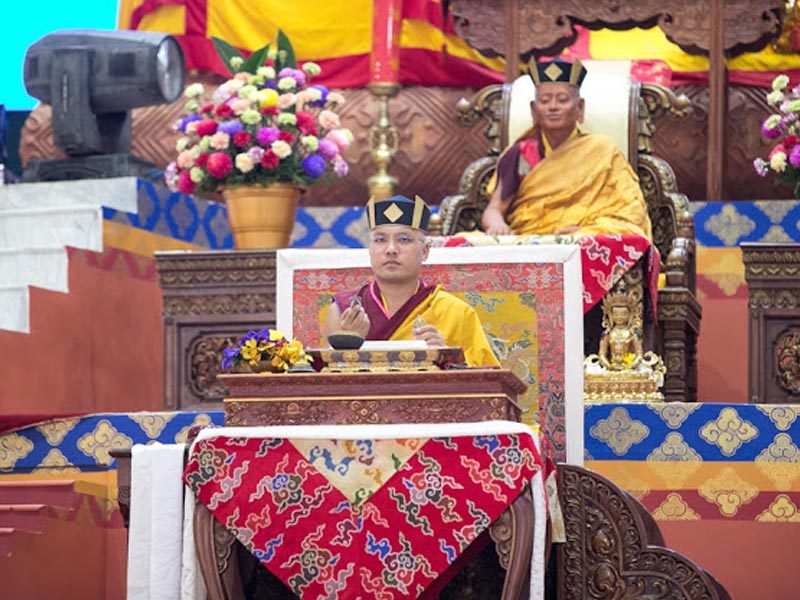
Monlam Pavilion — 22 February, 2016
As the 33rd Kagyu Monlam drew to a close, the Gyalwang Karmapa offered a ceremony of appreciation to this year’s major sponsors. “Sponsor appreciation is about explaining the benefits of generosity,” he said. And so, the Karmapa offered a short teaching before performing a ritual for dedicating the virtue.
First, the Karmapa explained that merit can be accumulated through the practices of generosity, discipline and meditation. Among these, generosity is the greatest. The reason for this is that one gains the benefit of giving in this and future lifetimes. “The things you keep for yourself stay in your house when you die,” the Karmapa said. “[Whereas] what you give away is yours, because you keep that merit when you die.”
To illustrate this point, the Karmapa told a story of Drukpa Kunley who was offered a box filled with many precious jewels and corals. Drukpa Kunley kept the box for a while and wore the jewels, and then after a while gave the box back. He said “It worked for a while, but I can’t keep it, so that’s enough.” Karmapa explained that Drukpa Kunley was teaching that you don’t actually own anything forever.
The Karmapa also explained that there are three types of generosity: material things, freedom from fear, and dharma. In general terms, the Karmapa said material generosity is giving something to someone who can use it. Freedom from fear is helping people be free from fear of demons. And giving the dharma has the benefit of helping one meet buddhas and quickly achieve buddhahood.
The Karmapa said he’s noticed that sometimes people who don’t have much wealth get discouraged and think they can’t practice generosity. He said no one should be discouraged, because in a sacred place even giving a paltry thing can bring vast results. As an example, the Karmapa told the story of a child who developed great faith and threw a handful of grains towards the Buddha, of which four grains fell in his alms bowl. As a result this child was reborn as King Ashoka, the great patron of Buddhism who reigned over a vast empire,” the Karmapa said. “If you have faith and respect, the thing that you give doesn't in itself need to be some valuable thing.”
The Karmapa further emphasized the impermanence of wealth and possessions in this lifetime, and the reason for practicing giving. “Even if you are rich you may become suddenly poor,” he said. “Wealth and money are things that we need, but money is not actually that satisfactory and meaningful. The best way to make it meaningful is by practicing generosity.”
Next, the Karmapa discussed the meaning and benefits of dedicating virtue. One of the main reasons for dedicating virtue is that if we don’t do so it can be easily wasted through our later misconduct. Specifically, the Karmapa explained that getting angry at a great being such as a bodhisattva can destroy all the good deeds you have accumulated throughout eons in a single moment. Likewise, developing a wrong view that denigrates noble beings, or regretting our good deeds can destroy virtue.
“The virtues we have accumulated ourselves can be wasted or destroyed by many different causes and conditions,” he said. “So that they are not destroyed we need to make dedications, and in that way those virtuous roots will not be depleted until enlightenment, and cannot be destroyed. That is why it is important for us to do these dedications.”
With that, the Karmapa put on his black activity hat for the chanting of the offering prayers. The offering prayers include offering the eight auspicious substances (white mustard seeds, durva, etc.), the seven articles of royalty (precious wheel, precious jewel, etc.), and the eight marks of auspiciousness (precious parasol, auspicious fish, etc.). While reciting the praises and splendor of each offering, gold and silver representations of them were held up by the Karmapa, and then placed in the hands of the eleven sponsors, who were seated on stage.
Resounding in all of these prayers was the supplication, “May there be, here and now, the auspiciousness of these offerings!”
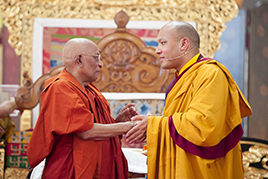
37th Kagyu Monlam Schedule
Tibetan / English / Chinese • French • German • Indonesian • Korean • Polish • Russian • Spanish • Vietnamese
Dharma Teachings
 Meditation Instructions
Meditation Instructions
Recorded during the 37th Kagyu Monlam, Bodhgaya, India. January 28-30, 2020.
